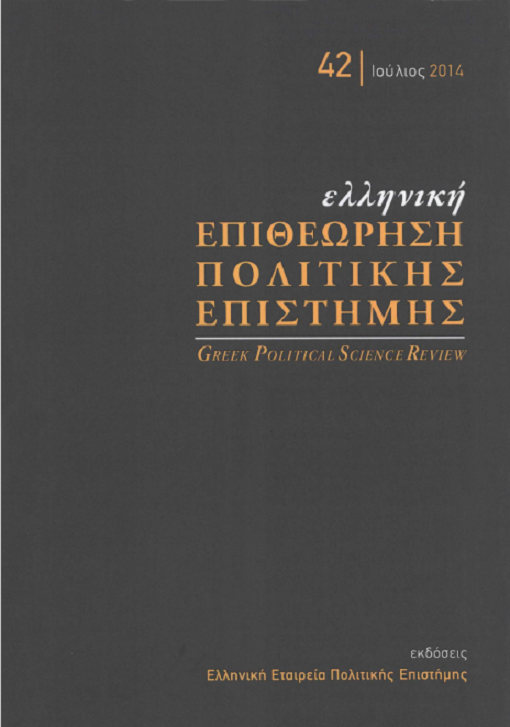The work of the Council of Europe on the legal regulation of NGOs: A source of inspiration for the Greek legislator
Аннотация
Notwithstanding that during the last decades NGOs have been very active, their number has ever been on the rise and their influence has increased considerably, the Greek legal order still lacks a legislative framework regulating their establishment and operation. On account of this reality, NGOs have been using the legal personality of other types of entities to perform their goals and mission, for example non-profit companies, associations of natural persons, charitable organizations, etc. Even though these other legal types satisfy to a larger of smaller degree the needs of contemporary NGOs, it is essential to put in place a regulatory framework, which would allow at the same time the troublesome establishment of all types of NGOs and consolidate their legal personality, would permit the State to supervise their creation and thereafter to control their activities (but without interfering in either case) and would devise a system for NGO accountability. The present article argues that the Greek legislator should be inspired by the important and pioneering work which has been carried out by the Council of Europe. While this intergovernmental organisation is far more known for the protection of fundamental freedom (and indeed the freedom to establish NGOs should be viewed as a right protected under the European Human Rights Convention), its work on the regulation of NGOs deserves to be studied in far more detail, principally its 2007 Recommendation on the Legal Status of NGOs in Europe. The latter does serve as a regulatory text addressing at the same time local NGOs but also foreign NGOs active in one or more of the 47 Member States of the Council of Europe.
Article Details
- Как цитировать
-
Magliveras, K. D. (2017). The work of the Council of Europe on the legal regulation of NGOs: A source of inspiration for the Greek legislator. Ελληνική Επιθεώρηση Πολιτικής Επιστήμης, 42, 108–119. https://doi.org/10.12681/hpsa.14572
- Раздел
- Αφιέρωμα

Это произведение доступно по лицензии Creative Commons «Attribution-NonCommercial-ShareAlike» («Атрибуция — Некоммерческое использование — На тех же условиях») 4.0 Всемирная.
Οι συγγραφείς θα πρέπει να είναι σύμφωνοι με τα παρακάτω: Οι συγγραφείς των άρθρων που δημοσιεύονται στο περιοδικό διατηρούν τα δικαιώματα πνευματικής ιδιοκτησίας επί των άρθρων τους, δίνοντας στο περιοδικό το δικαίωμα της πρώτης δημοσίευσης. Άρθρα που δημοσιεύονται στο περιοδικό διατίθενται με άδεια Creative Commons 4.0 και σύμφωνα με την οποία μπορούν να χρησιμοποιούνται ελεύθερα, με αναφορά στο/στη συγγραφέα και στην πρώτη δημοσίευση για μη κερδοσκοπικούς σκοπούς και με δικαίωμα τροποποίησης μόνο με παρόμοια διανομή (αν αναμείξετε, τροποποιήσετε, ή δημιουργήσετε πάνω στο υλικό, πρέπει να διανείμετε τις δικές σας συνεισφορές υπό την ίδια άδεια όπως και το πρωτότυπο).


